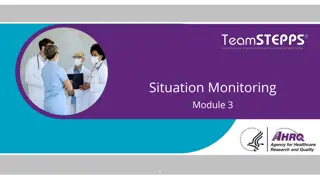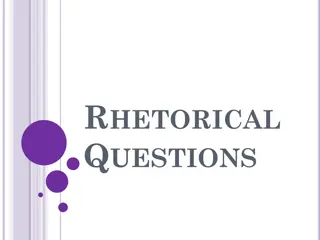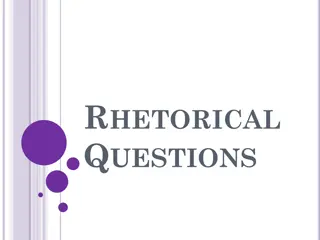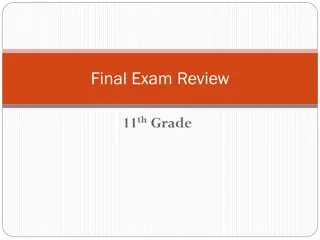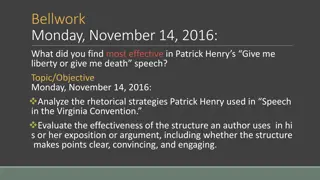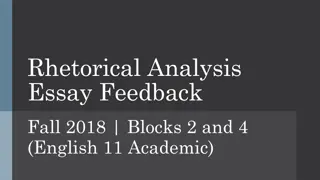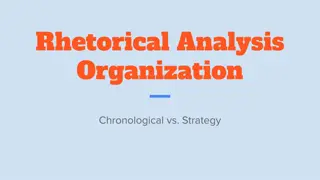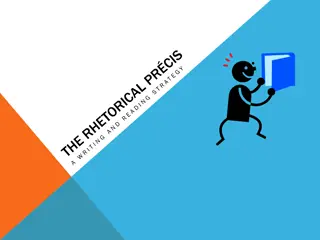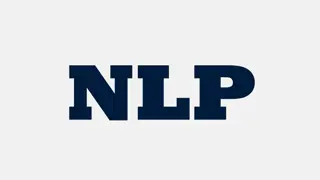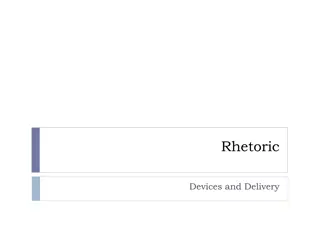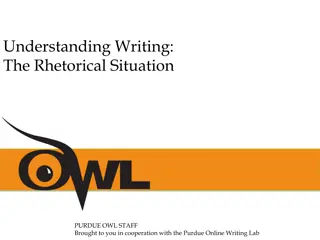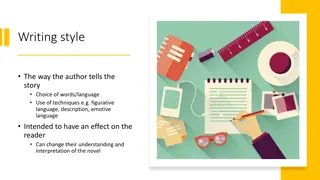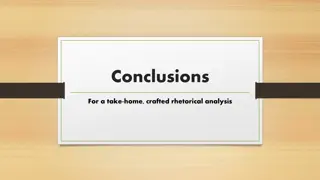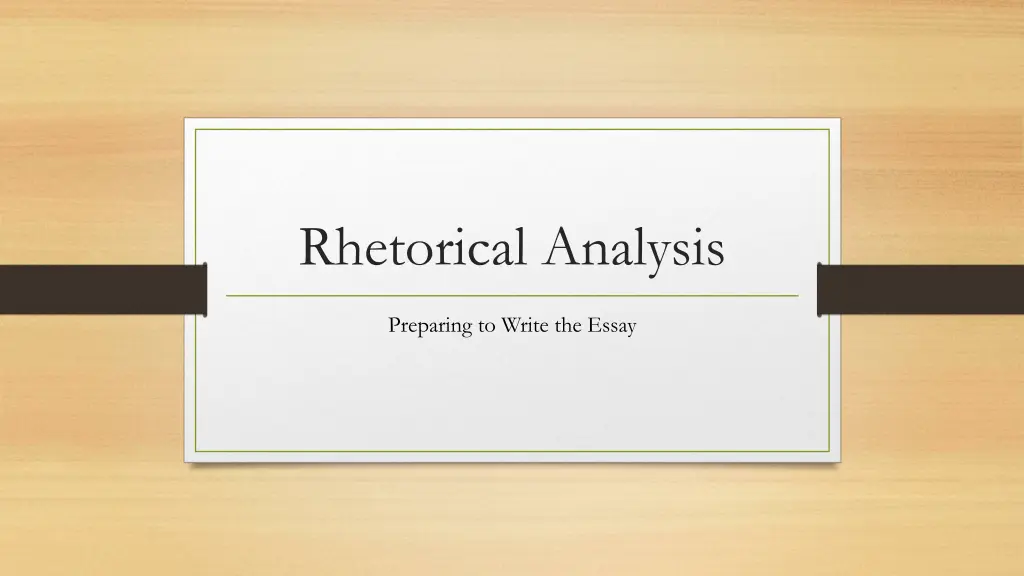
Mastering Rhetorical Analysis: Unveiling the Text's Core Elements
Discover the essential components of a successful rhetorical analysis essay including the Rhetorical Triangle, SOAPS method, considerations for Speaker, Occasion, Audience, Purpose, Subject, Genre, and more. Uncover how understanding these elements can enhance your interpretation and critical analysis of texts.
Uploaded on | 2 Views
Download Presentation

Please find below an Image/Link to download the presentation.
The content on the website is provided AS IS for your information and personal use only. It may not be sold, licensed, or shared on other websites without obtaining consent from the author. If you encounter any issues during the download, it is possible that the publisher has removed the file from their server.
You are allowed to download the files provided on this website for personal or commercial use, subject to the condition that they are used lawfully. All files are the property of their respective owners.
The content on the website is provided AS IS for your information and personal use only. It may not be sold, licensed, or shared on other websites without obtaining consent from the author.
E N D
Presentation Transcript
Rhetorical Analysis Preparing to Write the Essay
S - Speaker Who is the writer/speaker/author? What are his credentials/his authority? What is his stance (position)? Curious? Opinioned? Passionate? Indifferent? Something else? Knowing all of this about the speaker affects how you understand the text, whether you agree or disagree take it seriously, etc.
O - Occasion When? Where? What caused the writing to happen? What s the broader issue, the big picture? The immediate situation? Atmosphere Attitudes Events
A - Audience Who is the intended audience? Are you a member of that group? If not, you should plan to look up Might you run into ideas/assumptions/ philosophies that you DON T agree with? unfamiliar terms/concepts
P - Purpose WHY does the text exist? What is the writer s goal? What does he want to achieve? Entertain? Inform? Persuade? What does he want you to think or to do now? Why are YOU reading this text?
S - Subject What is the text about? Specific / general? Current / timeless?
Genre What is the genre? Fiction? Nonfiction? Analysis? Essay? Something else? Knowing the genre can help you anticipate key features.
G - Genre Continued What is the medium the text is written in? Speech? Essay? Letter? Book fiction/nonfiction? Web? Publisher / Sponsor? Date of publication? Reputable? Credible?
Your Reaction to the Text What is your initial reaction? 1. Emotional 2. Intellectual Why do you think you had this reaction? Agree / disagree? Personal experiences / background? Personal beliefs / philosophies? As much as possible, don t let your own opinions color your analysis of the situation. That s why you have to identify your opinions up front!
ETHOS To demonstrate Credibility Trustworthiness Consider the speaker s: Reputation Expertise / experience Knowledge Sincerity Any combination of the above The speaker s ethos gives the audience a reason for listening to this person on this subject.
PATHOS Appeals to Emotions Values Desires Hopes/fears/prejudices There is great power in evoking an audience s emotions. TOOLS: Figurative language Personal anecdotes Vivid imagery
LOGOS Appeal to reason Uses clear, rational ideas TOOLS: Specific details Examples Facts Statistics Charts Graphs Expert testimony
In Your Book Group Analyze the rhetorical situation in Einstein s letter for SOAPS and G.
In Your Book Group Analyze Lou Gehrig s Farewell Speech Analyze Gehrig s argument & appeals
With ONE Partner Analyze Bush s 9/11 speech Analyze Bush s argument & appeals
On Your Own Analyze the book s rhetorical situation Analyze the author s argument & appeals
In Your Book Group Share your rhetorical analysis of your book Discuss Add Modify

